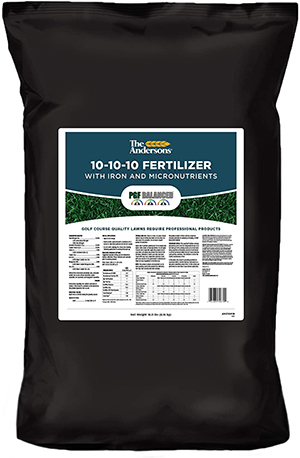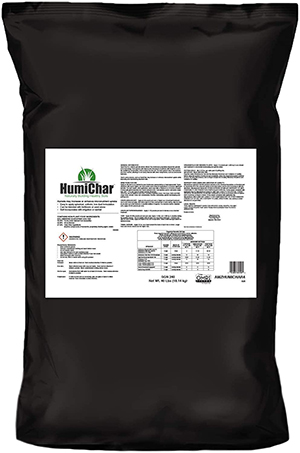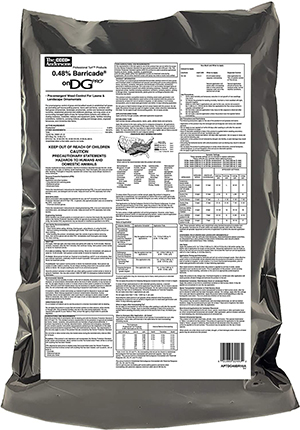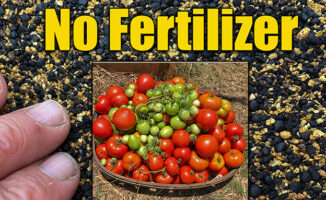Organic vs Synthetic Fertilizers What to Use When
Doc covers when to use organic fertilizers vs. synthetic fertilizers and the benefits of using both. Organic fertilizers are derived from natural sources, such as animal manure, compost, bone meal, fish emulsion, and plant matter. They contain a variety of nutrients, including nitrogen (N), phosphorus (P), and potassium (K), along with other micro nutrients. Synthetic fertilizers, on the other hand, are manufactured using chemical processes. They typically contain concentrated forms of nutrients, such as ammonium nitrate, urea, and super phosphate.
Organic vs Synthetic Fertilizers Video
Free Lawn Care Guides
Click the picture below and then select the guide you need.
New Dirt Booster Plus for Lawn and Gardens
Add organic matter, microbes, and good fungus to make your lawn and garden thrive. All new formula.
PGF Balance 10-10-10
A professional grade 10-10-10 with tiny particles, micro nutrients, and iron.
PGF Complete 16-4-8 Lawn Fertilizer
This is the main fertilizer for ALL lawns during the growing season. Warm season and cool season lawns.
Liquid Pre Emergent Doc Uses
Note… it’s not cheap but this bottle goes a long way.
HUMICHAR…
Should be applied to ALL LAWNS and can be applied as heavy and as often as you like. It contains NOTHING that can hurt your lawn and is 50/50 mix of biochar and humic acid.
Killing Grubs and Army Worms with the Double Kill Doucide
Preventative products should be used in the late summer. Killing products work best in the spring. The product below can be applied anytime of the year to kill grubs.
GreenShocker Fast Acting Granular
GreenShocker is a granular, all fast release, fertilizer supplement.
Granular Pre-Emergent in DG Particles
This is the first step for your spring lawn. Stop weeds and crabgrass BEFORE they can grow.
PGF Complete website to pick the right fertilizer.
Nutrient release: Organic fertilizers release nutrients slowly over time as they decompose or break down naturally. This slow-release nature ensures a steady supply of nutrients to plants and helps improve soil structure and microbial activity. Synthetic fertilizers, on the other hand, provide an immediate supply of nutrients to plants since they are readily soluble in water. However, they can also leach quickly through the soil, leading to nutrient runoff and potential environmental pollution.
Soil fertility: Organic fertilizers contribute to the long-term improvement of soil fertility by increasing organic matter content, improving soil structure, and enhancing beneficial microbial activity. They promote the development of healthy soil ecosystems. Synthetic fertilizers, while providing quick nutrients to plants, do not have the same long-term benefits for soil health and may even have negative impacts on soil quality if used excessively or improperly.
Environmental impact: Organic fertilizers are generally considered more environmentally friendly compared to synthetic fertilizers. They are derived from renewable resources, reduce dependence on chemical inputs, and contribute to sustainable agricultural practices. Synthetic fertilizers, especially when overused or misapplied, can lead to nutrient pollution in water bodies, soil degradation, and the emission of greenhouse gases during their production.
Nutritional quality: Organic fertilizers indirectly contribute to the nutritional quality of crops by enhancing soil health, which can lead to improved nutrient uptake by plants. However, the nutrient content in organic fertilizers can vary and may not be as concentrated as in synthetic fertilizers. Synthetic fertilizers provide specific nutrient ratios that can be tailored to meet specific plant requirements, but they do not contribute to long-term soil health and overall nutritional quality to the same extent as organic fertilizers.
Regulatory considerations: The use of synthetic fertilizers is regulated in many countries to ensure proper handling, storage, and application to minimize environmental impacts. Organic fertilizers, particularly those used in certified organic farming, have specific guidelines and regulations regarding their production, content, and usage.
In summary, organic fertilizers are derived from natural sources, release nutrients slowly, improve soil health, and are generally considered more environmentally friendly. Synthetic fertilizers provide immediate nutrients to plants but may have negative impacts on soil health and the environment if not used properly. The choice between organic and synthetic fertilizers often depends on factors such as farming practices, environmental considerations, crop requirements, and regulatory frameworks.














